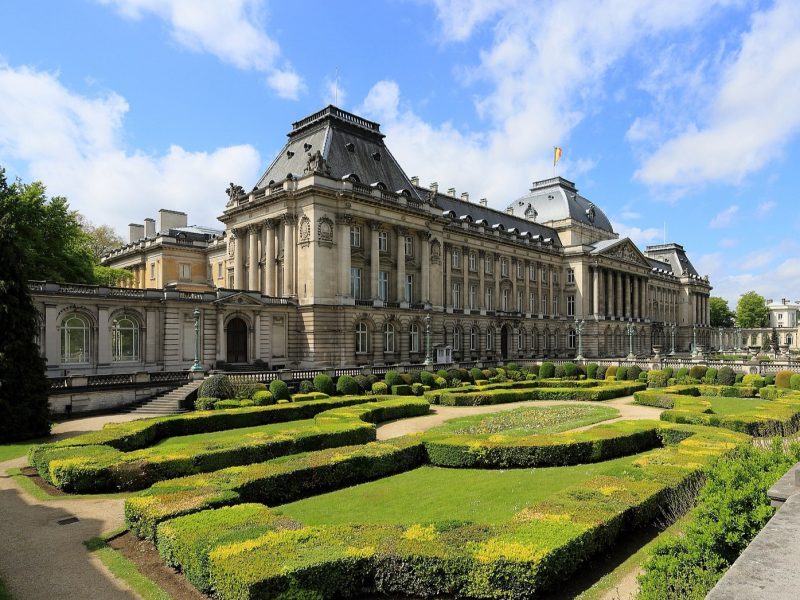
Michelle Hahm, a junior studio art major, holds a sketchbook with some of her work. She is creating a book of illustrations of Holocaust survivors.
For one week last semester, junior Michelle Hahm spent every day at the U.S. Holocaust Memorial Museum in Washington.
The Korean-American studio art major grew up in a predominantly Jewish community about five minutes from a synagogue in Potomac, but after a week of absorbing the museum’s exhibits, she realized she had a lot of unanswered questions.
“I guess I couldn’t help but see a lot of my friends in the exhibition, which is kind of morbid, but it kind of made me realize what a lot of them had escaped just by being born in a different time period,” Hahm said.
Soon after, an idea was born — Hahm decided she wanted to use her background in illustration and art to portray Holocaust survivors’ stories in an e-book.
“I’m just one person, but I guess I’ve never seen the Holocaust testimonies portrayed artistically,” said Hahm, who hopes to complete the e-book by the end of her senior year. “I hope it can appeal to people who see the world visually, like I do.”
In January, Hahm traveled to Long Island to team up with an Adopt a Survivor volunteer and interviewed six Holocaust survivors. Hahm plans to paint a portrait of each survivor; she will choose a part of their story to illustrate and accompany the art with their written testimony.
“We were very excited about it,“ said Donna Rosenblum, a volunteer at the Holocaust Resource Center at Temple Judea of Manhasset in New York who helped Hahm link up with survivors. “One of the best forms for Holocaust education is when it comes through students. … Art is a real equalizer in education. Everyone can appreciate art on some level.”
Hahm also worked with Jewish organizations on the campus such as Hillel and MEOR Maryland to find additional subjects, most of whom she’s planning on connecting with soon.
“In some ways, what shocked me most was that a lot of [Holocaust survivors] were just ordinary grandparents,” Hahm said. ”[It] shocked me just how different they all were, too. … They all had such individual voices, individual experiences and individual ways of coping with it as well.”
Hahm has no affiliation with Judaism besides her friends and acquaintances, but she said the separation allows her to have a neutralized perspective.
To some, it makes her work seems more intriguing and meaningful.
“I think it’s special and commendable to hear people for who it’s not their heritage and are really fascinated,” Rabbi Zalman Goldstein of MEOR Maryland said. “I’m a little bit surprised. It’s unusual that she feels a connection.”
After graduation, Hahm said she’d like to go to Israel for a long period of time to continue to collect stories.
“For me, it’s very important,” Rosenblum said. “I’m going to be a Holocaust educator without survivors, and we’re trying to plan for the future of Holocaust education. … Anything that people can do is so powerful.”
Hahm is also working on applying to create her own major — human studies in an artistic context — through this university’s individual studies program. She said she would make this book her senior thesis project, but noted it’s not her main motivation for creating the e-book.
“I’m more concerned about getting the story out rather than making money,” she said. “If I can keep finding survivors after that, then I’ll keep adding them into my book, and I’ll probably just keep going until all the survivors are gone.”
Hahm said she hasn’t thought too much about how people will react to her end product, but she hopes it can appeal to other non-Jews like her.
“The impact? Maybe just a greater understanding of each other,” she said.


